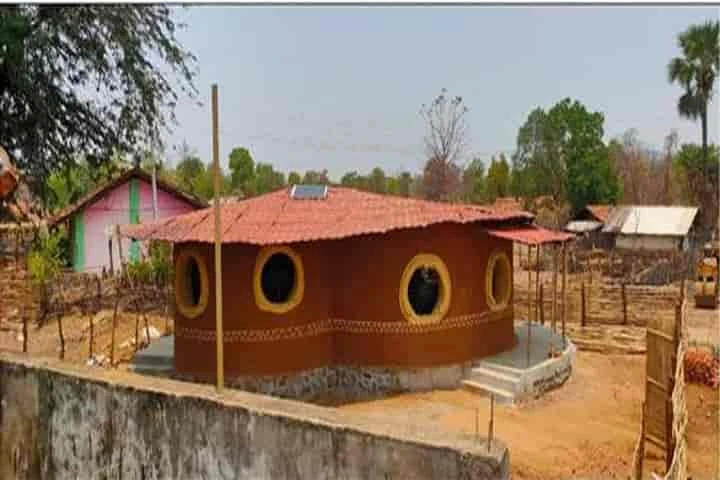Bringing about change is a gradual process yielding dividends slowly. Proving this is the programme launched by Maharashtra’s Gadhchiroli district administration aimed at trying to eradicate the inhuman and cruel practice of sending girls and women to Kurma Ghar or “Period Hut” during their critical menstrual period.
The initiative launched in 2018 aims to change the mindset of people to help the girls and women of Gond and Madia tribes who during menstruation faced several cultural, religious and social taboos.
Winds of change
Now in place of Kurma Ghars, Mahila Visava Kendras or Women’s Rest Centres have come up. These are safe and secure spaces having all the basic amenities like toilets, bathrooms, handwashing facilities with soap and running water as well as cooking amenities.

The women and girls during their stay in this centre can occupy themselves in self-help group activities and other hobbies as the place is equipped with a library, sewing machine, kitchen garden etc.
All this enables the women to manage their menstruation with dignity.
So far 23 such centres have been constructed with their architectural plan, layout and material specifications designed taking into account the local housing style and patterns. The District Administration is planning to build more than 400 such centres.
Going beyond sanitation, this initiative aimed at menstrual hygiene management (MHM) is underlining the need for construction of toilets in households and schools for safe menstrual hygiene practices. Further it aims at skill development and setting up of sanitary napkin dispensers and incinerators in schools and public toilets.

Various programmes have been started to dispel myths and taboos surrounding menstruation, encouraging girls and women to talk about it and clarify doubts.
Impact of the programme
Women and girls are now more aware of MHM and the need for sanitary pads or clean cloth. They are also questioning practices which refrain from bathing until the third day, or entering temple or kitchen or touching pickles.




















